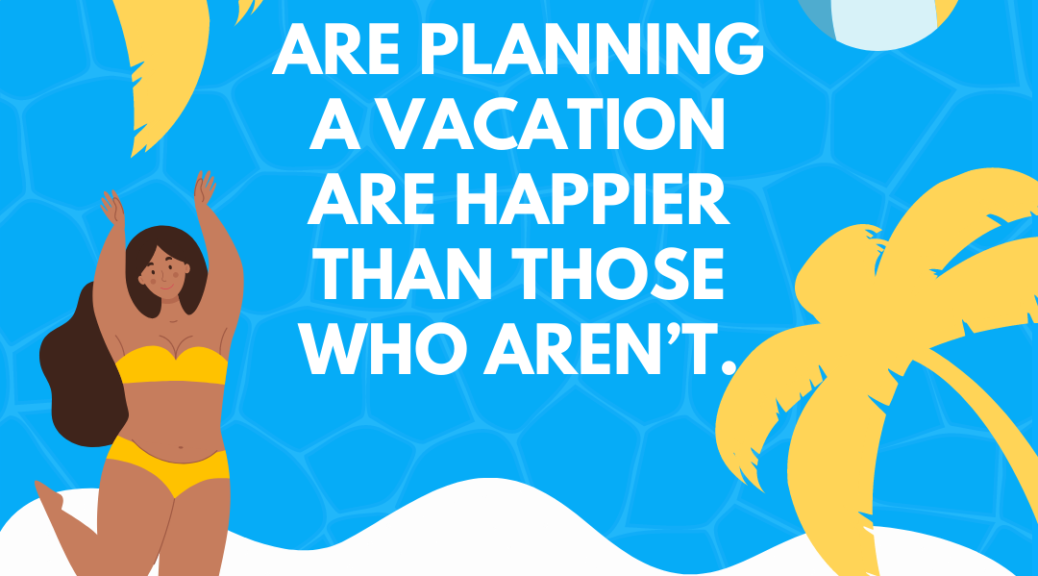
Planning a vacation makes you happy.
Planning a vacation makes you happy.
SANTA ROSA BEACH, Fla. (PRWEB)
March 24, 2022
The 30A Company (http://www.30A.com), a beach media and lifestyle brand, commissioned a research study to examine the relationships between the beach, travel, and happiness. Conducted by The University of Alabama’s Public Opinion Lab (https://publicopinionlab.ua.edu), the study revealed, among other things, that people are significantly happier when actively anticipating or planning their next vacation.
The study surveyed 1,040 random U.S. adults between the ages of 25 and 55 to determine people’s level of happiness and how it is influenced by beaches and travel. People over the age of 55 were excluded from the study, to limit the possible impact of retirement on one’s happiness.
Overall, the research identified six key findings:
1. Planning a vacation makes you happy. “People who are planning a vacation are significantly happier than those who aren’t,” said Dr. Jameson Hayes, Associate Professor and Director of the Public Opinion Lab. “Reflecting back on your last vacation doesn’t necessarily make you happier, but looking forward to your next trip certainly does.”
2. It doesn’t matter where you go. Beaches are the preferred vacation destination among 34.2% of respondents, with mountain vacations second at just under 20%. But the data shows that one’s happiness increases regardless of the type of destination. “Anticipating any upcoming vacation appears to significantly boost happiness, regardless of whether it’s to the beach, the mountains, or a big city,” said researcher Jay Waters of the University’s College of Communications and Information Sciences.
3. The more you travel, the happier you are – but only up to a point. Respondents who traveled for pleasure 15-21 days per year reported the highest levels of happiness. Those traveling less than 2 weeks per year or more than 3 weeks per year, reported being less happy. “It appears that happiness does have its limits as it relates to travel,” said Waters.
4. Vacation souvenirs increase happiness. People who surround themselves with 2-3 physical reminders of their favorite vacation destination reported higher levels of happiness when compared to those who don’t. “Surrounding yourself with mementos from past vacations such as apparel, photos, art, bumper stickers, and even phone ringtones can increase happiness levels,” said Dr. Hayes.
5. Travelers use technology to stay connected with their favorite destinations. Every week, 50% of respondents viewed social media posts that reminded them of their favorite destination. Following a destination on social media, adding it to their weather app, and having a related wallpaper on their phone or computer were the most commonly used reminders.
6. Post-pandemic travel is expected to increase. Pre-pandemic, 58% of respondents said they normally spent less than five days per year on vacation. Medium Travelers (6 to 14 vacation nights per year) comprised 29%, while Heavy Travelers (15 days or more) made up 13% of respondents. Light Travelers reported that they plan to travel significantly more as the pandemic wanes, with the group of Medium Travelers expected to increase by 15 percent.
Ultimately, researchers found that action is an essential key to unlocking happiness. “We found that anticipation trumps nostalgia,” said Waters. “So if you want to be instantly happier, book a trip.”
To learn more about 30A’s inaugural Beach Happy research study, visit http://www.30A.com/beach-happy-study. For additional resources visit https://publicopinionlab.ua.edu/beach-happy-study-2022/
Inspired by small town life along Florida’s Gulf Coast, 30A® shares BEACH HAPPY® stories and eco-conscious products with millions of fans worldwide. 30A has 1.5 million social media followers, has raised $2.8 million for coastal charities, and has given away 3 million of its world-famous blue 30A stickers. Available in 380 stores nationwide, 30A apparel is made from recycled plastic bottles, preventing 6 million water bottles from going into our landfills and oceans so far. To learn more, visit http://www.30A.com.
Share article on social media or email:

